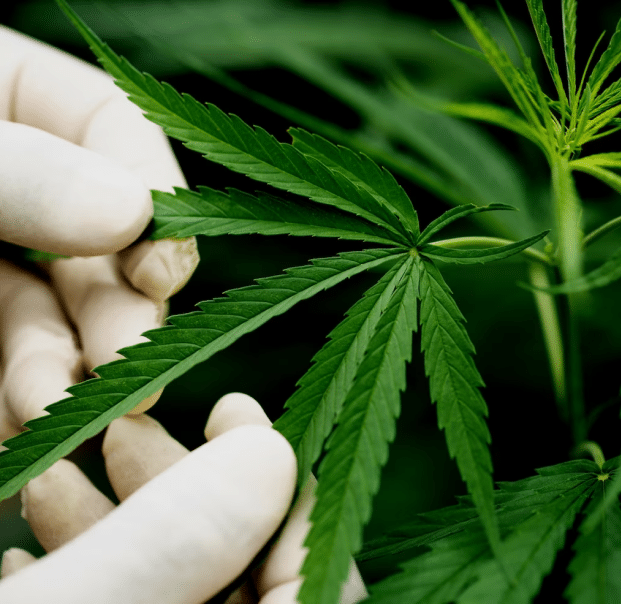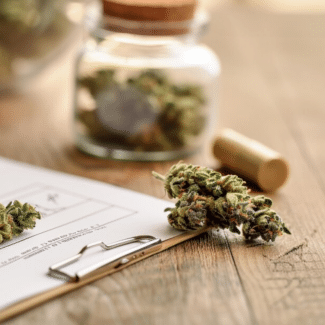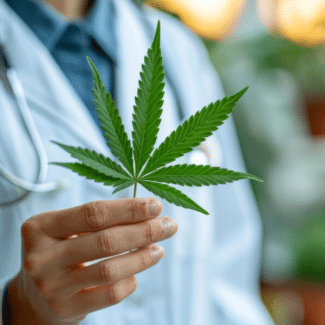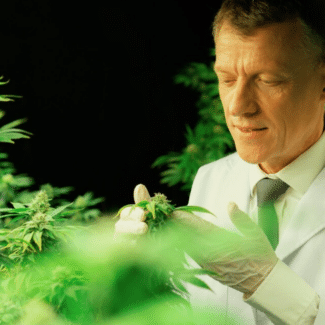How to Get a Cannabis License in Maryland
This guide provides essential insights into the process of obtaining a cannabis license in Maryland, highlighting key steps, eligibility criteria, and documentation requirements. It emphasizes the importance of thorough preparation and compliance with state regulations to successfully navigate the burgeoning cannabis industry.

Obtaining a cannabis license in Maryland presents a promising opportunity for entrepreneurs and cannabis enthusiasts.
With the state’s embrace of medical and recreational cannabis legalization, the industry is experiencing rapid growth, making it an exciting prospect for those looking to enter the market.
Maryland’s well-regulated system ensures transparency and accessibility for individuals seeking a cannabis license. By thoroughly understanding the necessary steps and requirements, aspiring entrepreneurs can position themselves strategically for success in this burgeoning industry.
The state’s commitment to maintaining a safe and responsible environment through its regulatory framework allows entrepreneurs to contribute to the industry’s growth while providing valuable products and services to consumers.
Regulatory Landscape Maryland Cannabis Licenses
In Maryland, the regulatory landscape for cannabis licenses is carefully structured to ensure compliance and promote a safe and transparent cannabis industry. The state has established regulatory bodies and agencies to oversee the licensing process and monitor the operations of cannabis businesses.
The Maryland Medical Cannabis Commission (MMCC) is the primary regulatory authority responsible for overseeing the medical cannabis program in the state.The MMCC (Maryland Medical Cannabis Commission) carries out regulations, including issuing licenses for medical cannabis cultivation, processing, and dispensing.
According to the MMCC, there were over 120,000 registered patients in the state, indicating significant demand for medical cannabis. The MMCC reported that the medical cannabis industry in Maryland generated over $1 billion in sales since the program’s launch in 2017.
In Maryland, several types of licenses are available for cannabis businesses:
- Cultivation License: This license permits the cultivation of medical cannabis plants. There are different classes of cultivation licenses based on the scale of operations, including Class A (up to 2,000 square feet), Class B (2,001 to 10,000 square feet), and Class C (over 10,000 square feet).
- Processing License: This license allows the processing and manufacturing of medical cannabis products, such as oils, tinctures, edibles, and topicals.
- Dispensary License: A dispensary license authorizes the sale of medical cannabis to registered patients and caregivers. Dispensaries play a crucial role in providing access to medical cannabis products to qualified individuals.
- Testing Laboratory License: This license is granted to laboratories responsible for testing and analyzing cannabis products to ensure safety and quality standards.
Research and Prepare
To obtain a cannabis license in Maryland, it is crucial to familiarize yourself with the specific requirements and criteria set forth by the Maryland Medical Cannabis Commission (MMCC). Here are some key points to consider:
Eligibility Criteria
Applicants must be at least 21 years old and meet certain residency requirements. For individuals, this means being a resident of Maryland for at least two years prior to the application date.
For businesses, the entity must be registered and in good standing with the Maryland State Department of Assessments and Taxation.
Background Checks
All individuals with a financial interest in the cannabis business, including owners and employees, must undergo background checks conducted by the MMCC. The checks include criminal history records and financial investigations.
Application Timeline
The MMCC typically opens application windows periodically for different license types. It is important to stay updated with their official website for announcements and deadlines.
The application process involves submitting various documents, including a comprehensive business plan, security plan, financial information, and proof of compliance with local zoning and land-use regulations.
Fees
Nonrefundable application fees are associated with each license type, which vary depending on the license category and class.
It’s essential to review the fee structure outlined by the MMCC to understand the costs involved.
Cultivation License:
- Class A (Up to 2,000 square feet): $2,000 application fee
- Class B (2,001 to 10,000 square feet): $4,000 application fee
- Class C (Over 10,000 square feet): $6,000 application fee
Processing License: $3,000 application fee
Dispensary License: $6,000 application fee
Testing Laboratory License: $3,000 application fee
Develop a Solid Business Plan
Developing a solid business plan is essential for obtaining a cannabis license in Maryland. A comprehensive and tailored business plan demonstrates your understanding of the local cannabis market and regulatory requirements.
It should include a thorough market analysis, examining the demand, competition, and potential growth opportunities in Maryland. Financial projections outlining revenue forecasts, expenses, and profit margins are crucial to showcase the viability of your business.
Your plan should address security measures to safeguard your facility, employees, and inventory, including surveillance systems, access controls, and employee training.
Demonstrating a strong commitment to compliance is vital, outlining procedures for inventory management, record-keeping, packaging, labeling, and employee training on responsible cannabis use.
Given the intricacies of the industry and specific requirements in Maryland, seeking professional assistance or consulting services can ensure your business plan meets the expectations of the Maryland Medical Cannabis Commission (MMCC).
By developing a comprehensive business plan that addresses these key elements, you will enhance your chances of obtaining a cannabis license and position your business for success in Maryland’s thriving cannabis market.
Assemble the Necessary Documentation
Here is a checklist of the required documentation for a cannabis license in Maryland:
- Proof of Identification (e.g., driver’s license, passport)
- Proof of Maryland Residency (e.g., utility bill, lease agreement)
- Financial statements, business plan, and proof of funding sources
- Lease agreement and property ownership documents (if applicable)
- Security plan and documentation for physical security measures
- Standard Operating Procedures (SOPs) for cultivation, manufacturing, or retail operations
- Employer Identification Number (EIN) and Maryland State Tax ID Number
- Employee handbook or policies and Maryland Unemployment Insurance registration
- Proof of Workers’ Compensation Insurance
- Maryland business license and industry-specific permits
- Maryland Sales and Use Tax License
- OSHA compliance documentation (if applicable) and health inspection certificates (if applicable)
- Environmental Impact and Sustainability Plans (if required)
- Compliance Documentation for Waste Management and Disposal
Submitting the Application
Completing and submitting the application for a cannabis license in Maryland requires careful attention to detail and adherence to submission deadlines. Here is a guide to help you through the process:
- Review the application requirements: Understand the specific documentation and materials needed for each section.
- Gather necessary documentation: Collect accurate and up-to-date documents, such as identification, financial statements, business plans, and security plans.
- Provide accurate information: Be meticulous and precise when completing the application form, ensuring all entries are accurate and supported by appropriate documentation.
- Showcase qualifications: Highlight your relevant experience, skills, and expertise in the cannabis industry, supported by certifications and references.
- Develop a strong business plan: Create a comprehensive plan demonstrating your understanding of the market, target audience, and competition, including financial projections and compliance measures.
- Emphasize community engagement: Showcase your commitment to responsible operations and how you plan to impact the local community and support social equity initiatives positively.
- Review and submit before the deadline: Review the application for errors or omissions, proofread all sections, and ensure all required documents are included. Submit the application before the designated deadline.
Application Review and Compliance Inspection
In Maryland, the timeline for application review and compliance inspections can vary depending on factors such as the specific licensing authority and the complexity of the application or inspection.
Generally, the application review process can take anywhere from a few weeks to several months. It involves the submission of necessary documents, followed by a thorough evaluation by the licensing authority.
Compliance inspections are typically scheduled after approval of an application or when deemed necessary by the licensing authority. The exact timing of inspections can vary, but they are typically conducted within a reasonable timeframe, often within a few weeks to a couple of months.
Regularly communicate with licensing authorities, respond promptly, and conduct internal audits to prepare for successful compliance inspections.
Ensure that your operations and procedures align with the relevant Maryland regulations. Implement robust record-keeping practices to provide evidence of compliance during inspections.
Remaining Compliant with Maryland Regulations
Remaining compliant with Maryland regulations and license conditions is crucial for businesses in the state. Compliance ensures businesses meet legal obligations, maintains consumer trust, and avoids penalties.
Common compliance requirements in Maryland include record-keeping, security measures, product testing, and labeling. Businesses must maintain accurate records, implement data security measures, conduct product testing, and adhere to specific labeling regulations.
To build robust compliance protocols, firms should study Maryland regulations, conduct audits, create policies, train staff, and track updates.Consulting legal professionals, and getting specialized cannabis insurance in Maryland is also recommended.
Conclusion
Getting a cannabis license in Maryland requires strict adherence to regulations and a commitment to compliance. Aspiring entrepreneurs can establish credibility by following guidelines.
Remember, strict adherence to the law is crucial for long-term success and sustainability in this evolving industry.



